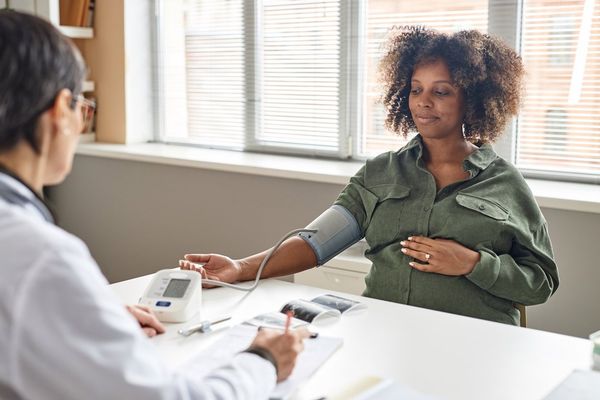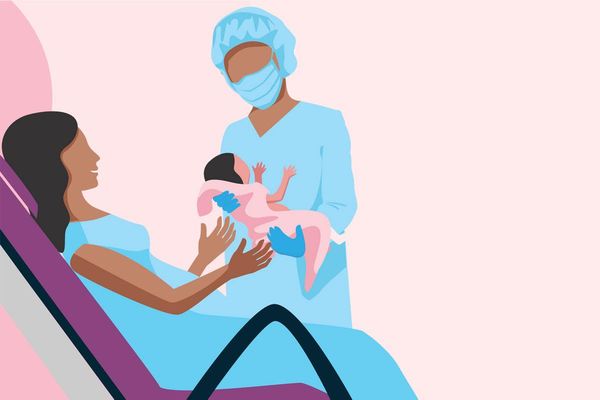During week 15 of your pregnancy, your baby's skeleton is developing and his legs are getting long, even though he is only about the size of a bottle of concealer. This is an exciting time as your tiny baby starts to take shape, but it also means that he will be testing out new limbs by kicking and fidgeting, which you may begin to notice in the next few weeks. Some women feel these movements as early as 13 weeks, but others, particularly those experiencing a first pregnancy, may not feel them until 20 weeks or later. Many women describe those first movements as flutters or gas-like sensations.
Tip of the week:
To ease digestion issues, try eating smaller meals throughout the day, and avoid fried foods, carbonated drinks, citrus fruits or juices and spicy foods, which can worsen indigestion and heartburn.
Your baby can now grasp, grimace, suck his thumb, frown and squint. Your little one may also now have a hairline, eyebrows, fingernails, toenails and a fine layer of soft, down-like hair called "lanugo" that provides insulation. This is necessary because your baby's skin is still pretty thin. In fact, it's so translucent that even teensy blood vessels are visible.
Also, the tiny bones that make up the auditory system are beginning to develop in the 15th week, so while your baby can't quite hear you yet, it may be time to start stocking up on classical music albums and other stimulating tunes to play to him in upcoming weeks.
While your little one is quickly developing, you might be experiencing some sensitivity in your teeth and gums, or even nosebleeds due to hormonal changes. Certain pregnancy hormones can induce inflammation in the body, leading to bleeding gums and broken blood vessels in the nose. To keep your dental health in check, be sure you're gently brushing and flossing daily, and see your dentist for at least one cleaning during your pregnancy.
Week 15 may also be the time when you really start to notice weight gain, as women typically gain three to five pounds in the first trimester and about a pound a week thereafter. Other symptoms that are typical during this stage of pregnancy include indigestion, heartburn, bloating, headaches and growing pains.
What’s the deal with reflux during pregnancy? Hormones that are specific to pregnancy can cause the lower esophageal sphincter (the muscular valve between the stomach and esophagus) to relax, allowing stomach acids to move back up into the esophagus. Plus, your growing uterus can crowd the abdomen, pushing stomach acids upward.
Read more:
Pregnancy Brain: Does It Exist?
Tips for Your Second Trimester
Guidelines for Safe Exercise During Pregnancy







